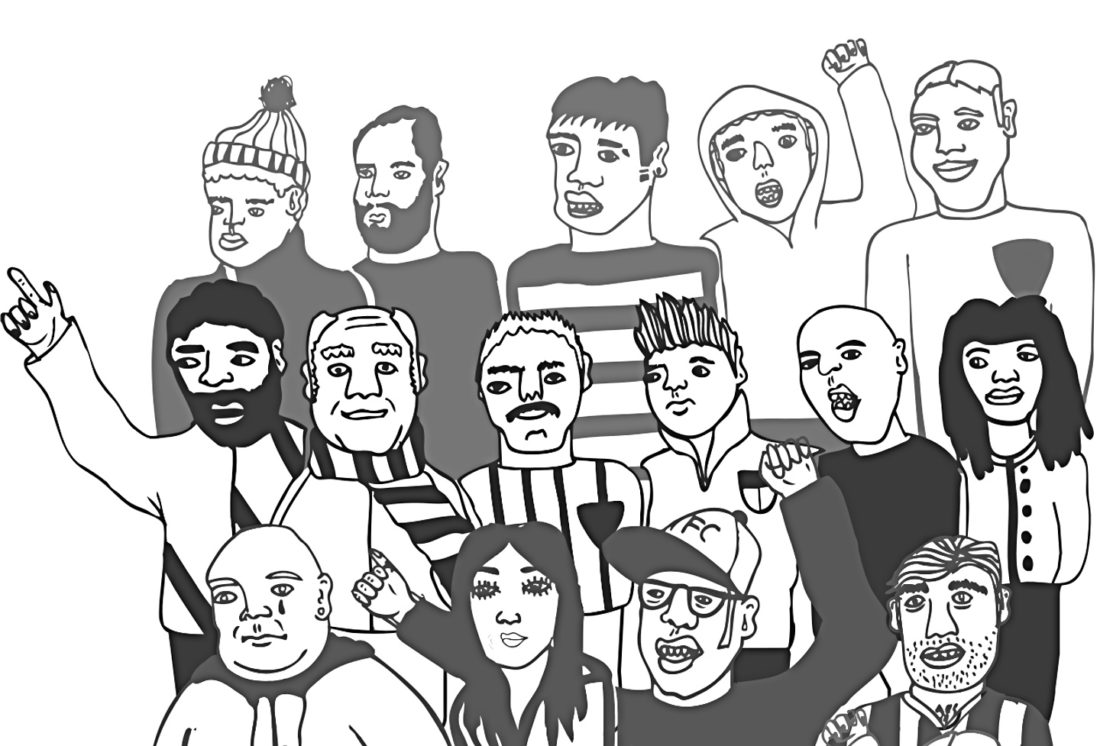JAN Tomaszewski bowed down and prayed.
‘Please, God, let this not be 7-0….’
The Great Lord heard him and removed his red and white scarf.
It was to end 1-1.
In late September 1973, Sir Alf Ramsey’s men demolished Austria 7-0 in a friendly.
Allan Clarke and Mick Channon scored twice each, with Martin Chivers, Tony Currie and Colin Bell completing the scoring.
Poland goalkeeper Tomaszewski would be facing England in a little over three weeks.
The Orly had beaten England 2-0 in June in Chorzów. But the victory came at a cost. Wlodzimierz Lubanski, scorer of the second, was to suffer a knee injury that would rule him out of the return fixture. He was probably never the same player again.
Tomaszewski was worried ahead of the Wembley fixture in October 17, 1973.
A victory on home territory was one thing. But this was Wembley.
“I was a bag of nerves,” he said.
“The day we beat Wales, they beat Austria 7-0. I thought Austria were about the same as us… so I prayed and prayed and prayed. Please, let this not be 7-0’….”
The rest you will know. Poland drew 1-1, Tomaszewski carved the word ‘Clown’ into Wembley folklore and England were forced to choose between supporting Scotland or AnyoneButScotland when the mundial kicked-off in West Germany a few months later.
The World Cup of 1974 was a symbolic milestone for the Poles – their first qualification since before WW2.
Kazimierz Górski’s men arrived without influential goalscorer Lubanski.
And while Poland were on the global scene as relative unknowns, their presence had already been felt two years earlier.
By then European football was undergoing tactical revolutions. The Netherlands were immersed with Total Football – a tactical notion where any outfield player could assume any role on the field.
The Soviet Union, meanwhile, were to be revolutionised by Valeriy Lobanovskyi’s disciplined appliance of science, albeit after the ’74 tournament, but certainly already causing ripples via his Dynamo Kyiv side.
And the host nation had laid on a performance of fluency and confidence at Wembley in 1972, when they beat England en route to winning the European Nations Cup – a performance of such dominance that French newspaper L’Equipe described it as ‘Football from the year 2000’.
Poland? They claimed gold medal with a swift, counter-attacking side at the Munich Olympics in 72. But that was the Olympics, home of shot-putters, equestrian events and kayaking. Football was hardly a major Olympic sport, they said.
And while Poland missed Lubanski, they were reinforced by brilliant playmaker Kazimierz Deyna, pacy wide man Grzegorz Lato, defender Wladyslaw Zmuda and forward Andrzej Szarmach. For the kit nerds out there, they were named from 1-22, pretty much in perfect positional sequence (with one or two exceptions). The goalkeepers wore 1-3 and so on…
Poland weren’t expected to stay long. Tomaszewski, allocated shirt No2, was pleased to see Poland’s chances discarded.
“We were matched up with Italy, Argentina and Haiti,” he reflects.
“This is what was supposed to happen: Italy would win the group, Argentina would finish second and we would be fighting over third spot with Haiti. That’s what people thought of us. They underestimated us.
“They forgot this was 1974, not 1970, or 1966, or a different era. They spoke of games they’d played against us in different times or talked of periods of their respective dominance. But football had moved on, we had moved on.”
Indeed, Poland had moved on.
Argentina were despatched 3-2 in their opening game of the 74 World Cup. Bottom place was no longer a concern. Haiti were given a seven goal shoeing – Andrzej Szarmach scoring a hat-trick – which meant the Poles went into the final game of the group knowing a draw would see them through as winners of the group. They had already qualified, regardless.
Another goal by Szarmach and one from Deyna was enough to see Górski’s side finish top, despite Fabio Capello’s late goal.
With qualification secured before the Azzurri game, Górski knew momentum over preservation was key. There was no ‘resting of players’ nonsense.
“This was another example of Kazimierz Górski’s abilities as a coach,’ added Tomaszewski.
“He didn’t make changes – he told us to go out there and show the world how to play football. So we did.
“We won that game and from that moment our psychological state went up even further because we had won a game [2-1] which we didn’t need to win. Italy were favourites of our group and also the World Cup. It was a brilliant game of football. Both sides attacked. But we sent them to the airport.
“We went into the next round. England, Argentina and now Italy…we could have taken on anyone and beaten them. Italy were back home before we kicked off our next game…Italy, the so-called favourites.
Poland were blossoming, Górski was weaving the offensive and elegant threads of Lato, Szarmach and Deyna, despite pre-tournament perception. The Bialo-Czerwoni were expected to be the subject of rubber-necking against the more established nations – the Eastern Bloc car crash unfolding on a global stage. They were due to be there for the short-haul.
Not so. And there were no shortage of goals in the side – yet Tomaszewski cites the influencer-in-chief as the trainer.
“Where do I start…Mr Górski was the Papal of Polish football.
“He was a phenomenal tactician. He knew exactly what to expect from opponents and how to adjust our style of play to suit certain games. We could play football but he knew when to change our philosophy.
“The best example was at Wembley. He knew we couldn’t go there and play ‘friendly’ football. He prepared us to press as a team, to force mistakes, to cover each other. We played as 11 footballers in every sense of the word. I didn’t play as a goalkeeper that night, I played as one of five defenders.
“We had units throughout the side and England couldn’t find a way in.
“During the World Cup, he knew that we needed to get the stress out of our systems so we sat until two or three in the morning, drinking beer in the sauna. Imagine that now? “Above all else, Kazimierz Górski opened our eyes to new ways of playing football.”
Sweden, Yugoslavia and West Germany awaited in a second round of four – with the top team from two groups effectively meeting in the World Cup Final.
Grzegorz Lato took his tally to five in the 1-0 win against Sweden, before reaching half-a-dozen in the 2-1 victory against Yugoslavia.
West Germany, meanwhile, beat Yugoslavia 2-0 in their opening game, before a 4-2 thumping against Sweden – a performance that, by in large, troubled Helmut Schön, forcing him to change tactics late on against the Scandinavian part-timers – ensured their place at the top of the group, with one game left to play.
And so the final games in both groups became unofficial semi-finals – Brazil needed to beat The Netherlands, while the hosts needing just a point against the Poles in the final game of Group B.
And then down came the rain. With more rain thrown in.
There was no question of Austrian referee Erich Linemayr calling off the game. There was to be no postponement.
The two teams slugged it out. West Germany unwilling to commit to risks they needn’t take, while the visitors’ pace and power was bogged down in the Waldstadion slop.
Gerd Muller scored 14 minutes from time, not before the players observed a 30 second silence for Juan Peron in the 22nd minute.
West Germany made the final, to face The Netherlands. The hosts won 2-1.
Poland? They made do with a third place victory over Brazil, with Lato scoring his seventh goal of the tournament – ensuring the golden boot.
Tomaszewski recalls: “After that game, I learned a new phrase: ‘Gloria Victis’. It means ‘honour to the defeated’.
“We did lose but everyone praised us. Some of the German players came to us afterwards and told us they were genuinely fearful of us. ‘What would have happened had it been dry?’ they asked. We will never know. I felt a great honour at what we’d achieved. As the defeated nation, we felt a sense of pride.”
Poland scored 15 goals in West Germany, with two of the top scorers Lato (seven) and Szarmach – yet how did they shape up to The Netherlands?
“I believe we were as good as them, if not better in some respects,” continued Tomaszewski.
“They had the best player in the world – or, in my view, one of the two best players in the world. The best was Beckenbauer, but so was Cruyff. He was their magician. He was their leader and a brilliant technical player. He was so much better than the rest of his side but he dictated their play.
“But we had Kazimierz Deyna, who was our great – the difference is that he was unknown. He was our conductor, we played to his tune. But I will say this – for me it was the best ‘final four’ of a World Cup that we’ve ever had. Brazil, Holland, us and West Germany. All four were wonderful sides.
“But ask me who I feared most and I’ll tell you West Germany, not Holland. And what a game that would have been.”
German defender Paul Breitner gave weight to that notion.
Speaking some years later he said: “I can remember one game where I’ve always maintained we beat a team which was fundamentally better than Germany, Holland and Brazil.
“It was definitely the best team in the competition and still didn’t win the World Cup. That team was Poland in 1974.”
Poland weren’t finished on a global stage. Proving 1974 wasn’t a fluke, they followed up with a reasonable showing four years later and another semi-final in 1982. On that occasion the suspension of Zbigniew Boniek, rather than rain, was to be their undoing, losing 2-0 to an improving Italy.
But 1974 remains, in many respects, Poland’s World Cup peak.
The final word goes to Tomaszewski.
“Two periods made us. That draw in England – the game that made England forever angry against us – and those few weeks in West Germany when we showed the world we could play football.
“Kazimierz Górski revitalised Polish football and gave us an identity. We owe him a lot. And I thank the Lord for that.”

